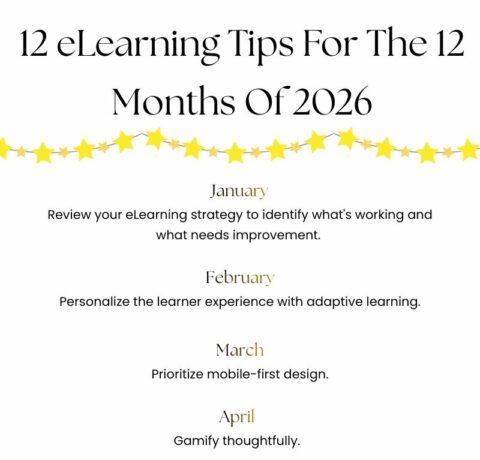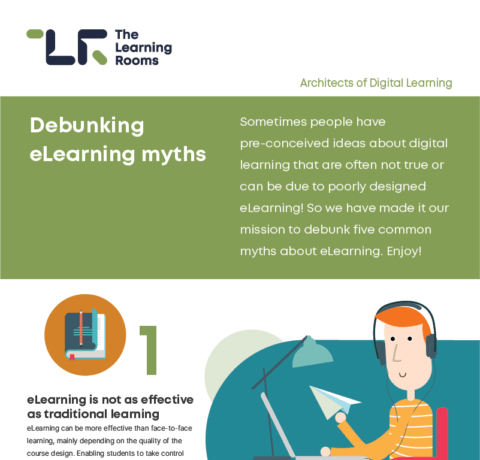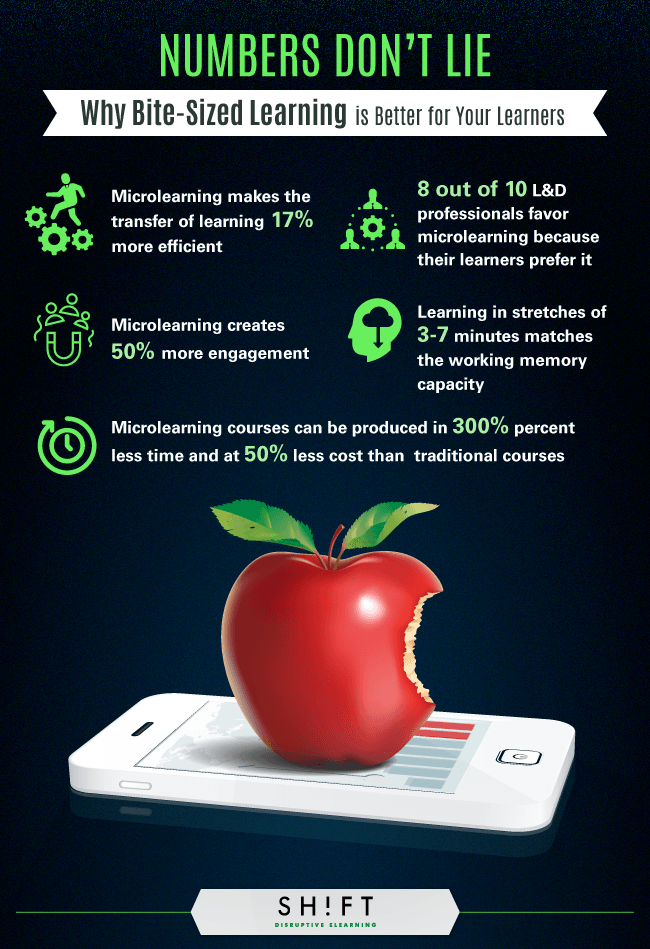Why Bite-Sized Learning is Better for Your Learners Infographic
Bite-sized learning or Microlearning is the latest buzzword in the eLearning world. Day-long PowerPoint training sessions are passé; microlearning is a new (and effective) way to train adult corporate learners. And the sooner your company adopts it, the happier your learners will be. Learner satisfaction, of course, translates into more business for you. The Why Bite-Sized Learning is Better for Your Learners Infographic presents useful facts and stats that explain why bite-sized learning is better for your learners and you too.
Microlearning makes the transfer of learning 17% more efficient
- When bite-sized learning content is easily and readily accessible, learners can take it at their own pace, wherever they are, and most importantly, when they are “ready.”
- Because bite-sized courses are more focused, learners don’t have to clutter their memories with irrelevant information. This makes retention easier.
- Learners have to digest only small chunks of information. This makes comprehension easier without spending too much effort.
- Because microlearning content addresses only 1-2 learning objectives, courses, on an average, yield 4-5 learned takeaways.
8 out of 10 L&D professionals favor microlearning because their learners prefer it
Millennial learners demand that training is
- Customized to their needs
- On-demand
- Informal
Microlearning fits the bill perfectly.
Microlearning creates 50% more engagement
Learner disengagement and boredom kill the chances of success in an eLearning program. Microlearning is the solution, as the learners themselves have pointed it out.
Learning in stretches of 3-7 minutes matches the working memory capacity and attention spans of humans.
The human brain is not wired to maintain focus for hours on end. It learns better when the content is delivered in short bursts with the courses well spaced out to help cement the learning. Repetition also aids retention. Microlearning is well-suited to this delivery format.
Microlearning courses can be produced in 300% percent less time and 50% less cost than traditional courses.
- There’s no need to pay for the instructor’s time, buy or rent physical classrooms and pay for the utilities, and spend money on classroom equipment.
- It is easier and less time- and resource-intensive to update digital information than reprint training manuals and conduct supplementary classroom training sessions.
- It is easier and less time-consuming to roll out microlearning courses because they are modular in nature.
Read also:
- Why Microlearning is HUGE and how to be a part of it
- Is Your Organization Ready To Implement Microlearning
View also:







You can adjust your cookie preferences here.